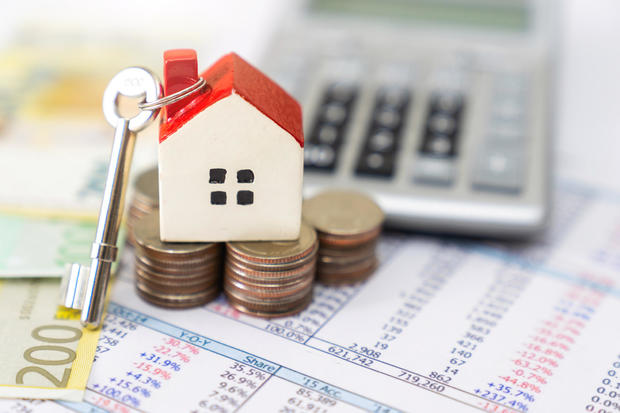How much do home equity loans cost per month?
Your home's equity is the portion of your home that you own free and clear. For example, if your home is worth $400,000 and your mortgage balance is $225,000, you have $175,000 in home equity. That's money you can tap into to help you pay off high interest debt, make home repairs or cover a wide range of other expenses.
A home equity loan is one of the best ways to access your home equity. These loans, also called second mortgages, typically come with fixed interest rates and payments. Moreover, rates on these loans are usually very competitive because the lender uses your home as collateral.
But it's important to understand the costs before you tap into your home's equity. After all, you'll need to pay your home equity loan back over time.
Access your home's equity with a home equity loan today.
How much do home equity loans cost per month
The monthly cost of a home equity loan depends on the total amount of the loan as well as the interest rate your lender charges you. The average interest rates on home equity loans in today's market are as follows:
- 10-year fixed home equity loan: 9.09%
- 15-year fixed home equity loan: 9.12%
Considering these averages, here's what you can expect to pay on a home equity loan based on your loan's value and duration (data courtesy of the First National Bank of Omaha home equity loan payment calculator):
- $25,000 10-year home equity loan: $318 per month
- $25,000 15-year home equity loan: $255 per month
- $50,000 10-year home equity loan: $636 per month
- $50,000 15-year home equity loan: $511 per month
- $100,000 10-year home equity loan: $1,272 per month
- $100,000 15-year home equity loan: $1,021 per month
It's important to keep in mind that interest rates and home equity loan amounts can vary. So, your monthly payment may be higher or lower than the payments quoted above.
Find out how affordable your home equity loan can be now.
How to cut the cost of your home equity loan
As mentioned above, the cost of a home equity loan varies depending on the amount of the loan and the interest rate the lender charges. Of course, when costs can vary, there's typically an opportunity to save. Here are a few ways you can cut the cost of your home equity loan:
Compare your options
Financial institutions are free to charge whatever interest rate they'd like when they issue a loan — within reason, of course. As a result, interest rates are one of the primary ways financial institutions compete with each other for your business.
"As with any loan, borrowers should research the best loan for their unique financial situation," says Austin Niemiec, chief revenue officer for Rocket Mortgage.
So, if you want the lowest interest rate possible, it's important to compare your options. Don't just apply for the first home equity loan you find. Instead, look into at least three options to find the lowest interest rate possible in your unique situation.
Opt for a longer loan term
"Looking for a longer term can help" you save money on payments, says Niemiec. "Opting for a 20-year loan instead of a 10-year loan can help keep monthly payments low." It's worth noting, though, that while a longer term may reduce your monthly cost, it will likely increase the overall interest you'll pay over the life of the loan.
Improve your credit score
Chances are that your credit score will play a significant role in the interest you pay on your home equity loan. Those with a strong credit profile typically pay better rates than those with a poor one.
"Another way to save money is by working to increase your credit score before applying for the loan. A higher credit score can help you get a lower interest rate which can save a lot of money in the long term. Even a quarter of a percentage point can save thousands of dollars," Niemiec says.
So, it may be advantageous for you to take steps to improve your credit score before you apply for a home equity loan. Some things to consider doing to improve your credit include:
- Pay down your credit cards to improve your credit utilization and debt-to-income ratios.
- Settle any past-due debts.
- Make it a point to make all of your loan payments on time.
Consider purchasing discount points
When you purchase a home, you typically have the option to purchase discount points that reduce the overall interest on your mortgage. Some lenders also allow you to purchase discount points when you take out a home equity loan.
In most cases, discount points cost 1% of the total value of the loan and bring the interest on the loan down by 0.25%. Although the 1% up-front fee may seem relatively high, you could save a significant amount of money over the life of your loan by purchasing discount points if you plan on making minimum payments. However, discount points may not be worth it if you plan on paying your loan off early.
Don't miss out on today's best deals. Lock in your home equity rate now.
The bottom line
Home equity loans are relatively inexpensive, especially when compared to unsecured lending options like credit cards and personal loans. Moreover, there are a few things you can do to further reduce your cost of borrowing against your home. Tap into your home equity today to access the money you need.




